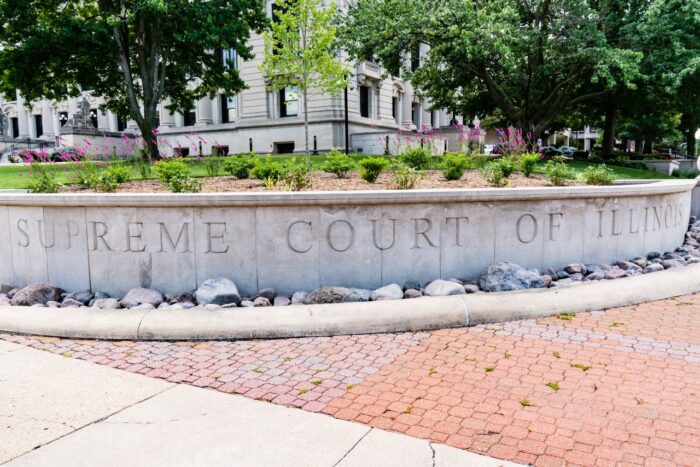Top Class Actions’s website and social media posts use affiliate links. If you make a purchase using such links, we may receive a commission, but it will not result in any additional charges to you. Please review our Affiliate Link Disclosure for more information.

BIPA Workers Compensation Preemption Ruling Overview:
- Who: The Illinois Supreme Court unanimously ruled statutory damage claims made under the Illinois Biometric Privacy Act are not preempted by the state’s Workers’ Compensation Act.
- Why: The high court rejected the argument that injuries suffered were akin to a workplace injury occurring in the line of duty, among others.
- Where: The class action lawsuit was heard by the Supreme Court of the State of Illinois.
The Illinois Supreme Court unanimously ruled that claims seeking statutory damages under the Illinois Biometric Privacy Act (BIPA) are not preempted by the state’s Workers’ Compensation Act.
The 7-0 vote undercuts a defense that has commonly been used by businesses and employers targeted with BIPA violation claims and allows a slew of paused complaints to now proceed.
Since BIPA was passed in 2008, companies and firms have routinely faced claims regarding the collection and storage of employees’ biometric data without proper consent.
The reason for the biometric data collection is, among other things, commonly due to needing workers’ fingerprints for clocking in and out of shifts.
A class action lawsuit filed by plaintiff Marquita McDonald targeting Chicago nursing home operator Symphony Bronzeville Park LLC was what brought the issue to the Illinois Supreme Court.
McDonald argued in an August 2017 class action lawsuit that Symphony had collected her biometric data through the use of a fingerprint timekeeping system without her written consent, as required by BIPA.
The high court, in affirming a decision by an appellate court, ruled McDonald had valid claims for liquidated damages due to the alleged collection or dissemination of her biometric data, rejecting the argument that her claims were akin to a workplace injury occurring in the line of duty, which would fall under the Workers’ Compensation Act.
“The personal and societal injuries caused by violating the Privacy Act’s prophylactic requirements are different in nature and scope from the physical and psychological work injuries that are compensable under the Compensation Act. The Privacy Act involves prophylactic measures to prevent compromise of an individual’s biometrics,” the justices said.
BIPA requires an entity to receive informed and written consent before it is able to collect and store an individual’s biometric data. It must also provide information about how it plans to retain, store and ultimately destroy the data.
‘Plain Language’ Of BIPA Makes Clear It’s Not Preempted
The high court ruled that, given the “plain language” of BIPA, it is clear it was not meant to be preempted by exclusivity provisions set by the Workers Compensation Act.
“The Privacy Act, which postdates the Compensation Act, defines the precollection ‘written release’ required by the Compensation Act to include ‘a release executed by an employee as a condition of employment,'” the justices said. “Thus, the legislature was aware that Privacy Act claims could arise in the employment context, yet it treated them identically to nonemployee claims except as to permissible methods of obtaining consent.”
The high court’s ruling comes less than a week after a class action lawsuit was filed against HireVue over claims the online video interview platform violates BIPA by collecting the biometric data of job candidates without proper consent.
Also this month, McDonalds agreed to a settlement worth $50 million to resolve claims it violated BIPA by improperly collecting the biometric data of workers who used their data to log in or use systems at the company’s Illinois’ restaurant locations.
Have you had your biometric data collected without your written consent? Let us know in the comments!
The plaintiffs are represented by Ryan D. Andrews, Eli Wade-Scott and Aaron Lawson of Edelson PC.
The BIPA Workers Compensation Preemption Case is In re: McDonald v. Symphony Bronzeville Park LLC, Case No. 126511, in the Supreme Court of the State of Illinois.
Don’t Miss Out!
Check out our list of Class Action Lawsuits and Class Action Settlements you may qualify to join!
Read About More Class Action Lawsuits & Class Action Settlements:















One thought on Statutory Damage Claims Made Under BIPA Not Preempted By Workers Compensation Act, Illinois Supreme Court Rules
Yes and I’m an Illinois resident.